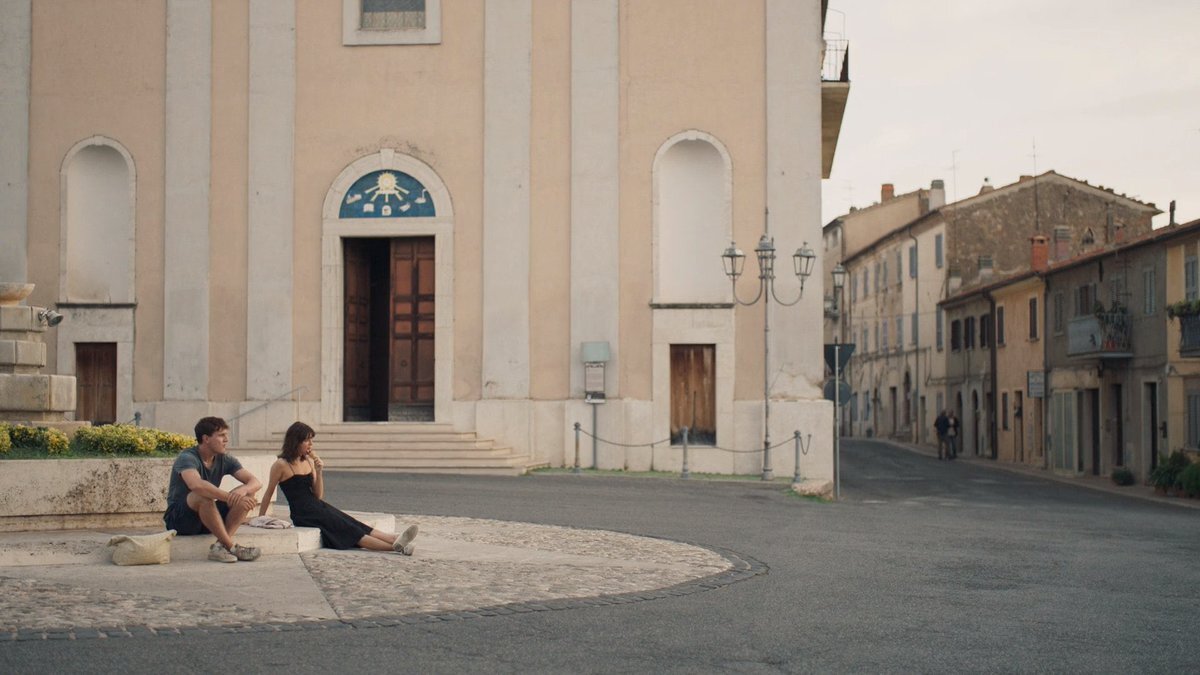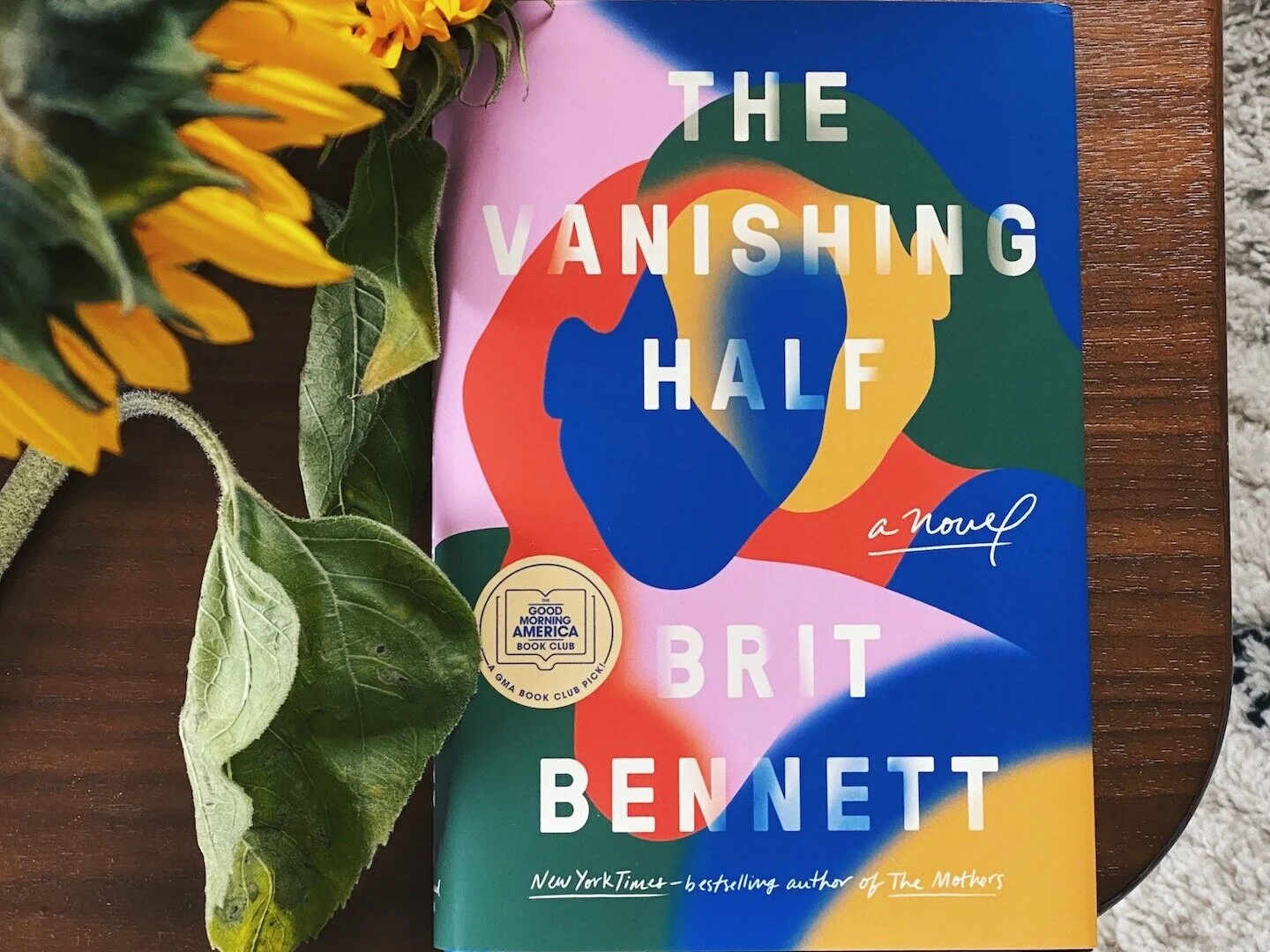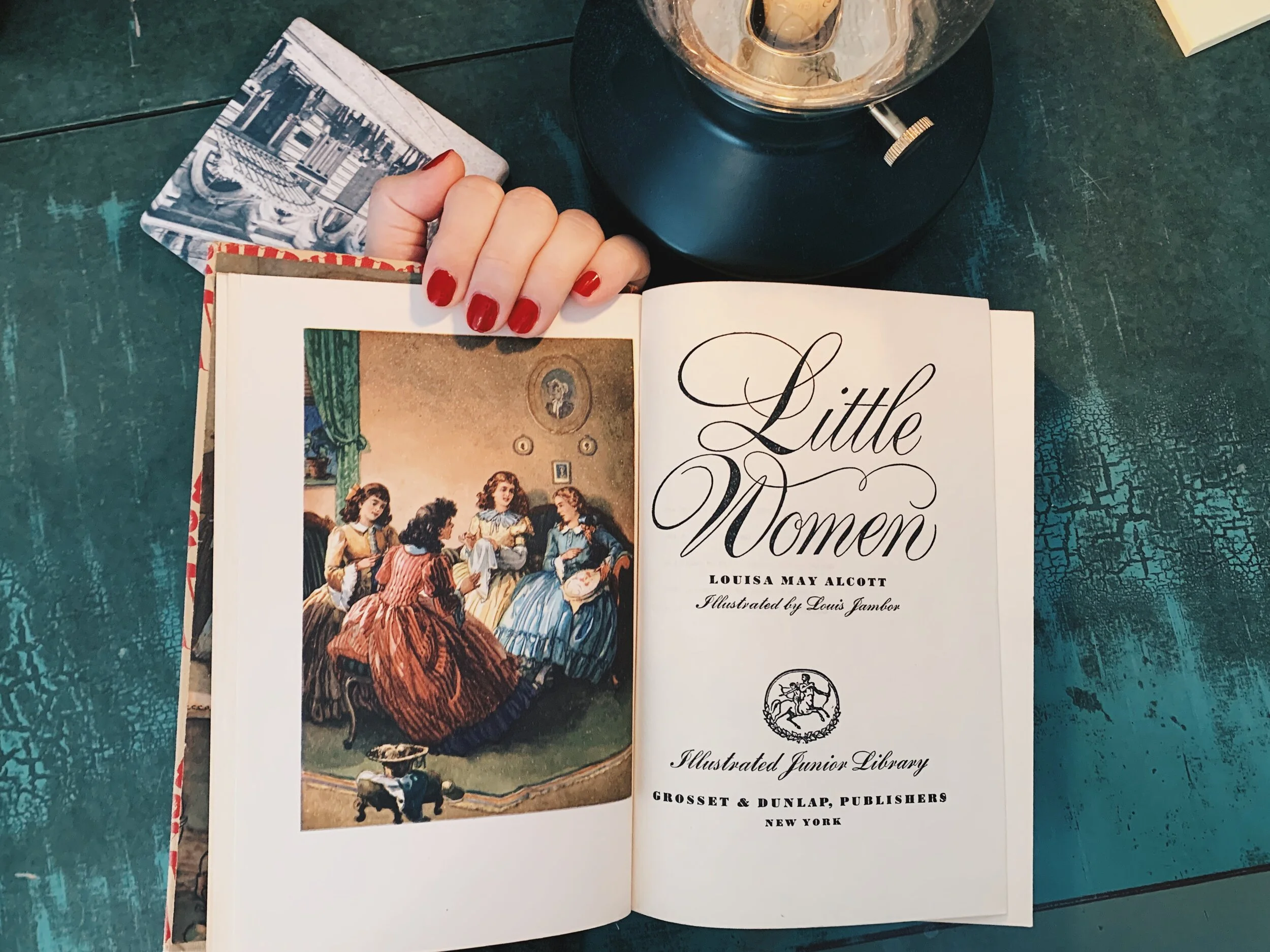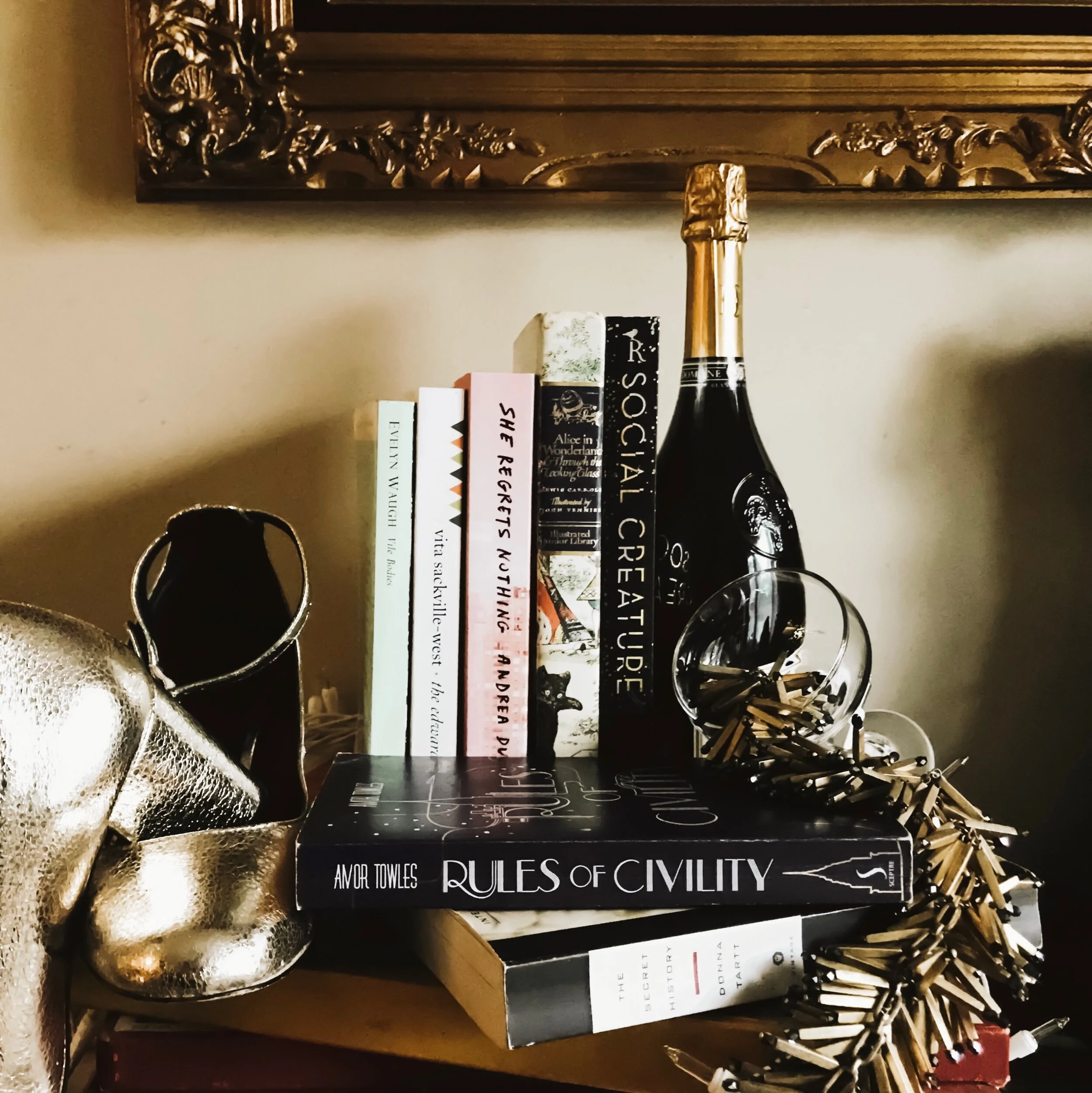Discussing Normal People: The Series
“...there’s something about seeing the raw and delicate feelings of Rooney’s characters rendered on screen — and in such unsparing detail too — that makes it at once impossible to look away from and excruciating to watch. ”
Amidst the preponderance of social isolation, and as we attempt to settle into our quarantine routines, vestiges of the lives we used to lead remain. In films and on TV, we watch — curiously and aghast — as characters mingle amongst strangers, inhabit foreign spaces, and touch each other as if the only risk they face is an excess of desire. Everything seems to be tinged with a heightened sense of eroticism, and none more so than the BBC/Hulu co-production of Sally Rooney’s Normal People. Already known as “The Horniest Show on TV” (Refinery 29), not only is this series a close and careful adaptation of a much-beloved novel, but — in these strange times, when we’re told to hold the world six feet away from us — it also serves as a stark reminder of what intimacy and solitude entails, of how we’re made and unmade by those whose lives rub up against ours.
At once a love story, a bildungsroman, and a glimpse into young adulthood in Ireland, the multifarious facades of Rooney’s novel have spoken variously to many of us at the Attic. Here, we gather — as pixels on a digital document, no less — to discuss the new lease of life lent to Marianne and Connell, as well as other things awkward, horny, and normal.
❃
Given the recent debate about Sally Rooney’s fame, shall we begin by opening this can of worms: who amongst us is a die-hard fan of Rooney, and who here is ambivalent about her popularity?
Rachel Tay: I’m hardly ever one to put anyone on a pedestal, so I tend not to praise or defend anyone unquestioningly, but I must say that Sally Rooney’s novels thus far are quite brilliant. Not for their relatability or their so-called Marxist socio-political critiques, which I think are insufficient measures by which to judge her books anyway, but for their exceedingly acute sensitivity to the minor, inarticulable, and conflicting feelings — the low-grade moods that sneak up on us gradually — that often set the backdrop to our everyday lives. Few contemporary writers have managed to crystallise these emotions in the way that Rooney has done — in such a precise yet generous manner. For that, I think her writing rightly remains commendable.
“I think she captures and writes about millennial relationships so well: this lack of desire to define relationships or use labels, but also the ways this same lack of definition causes immense pain as people work to define something they’ve already decided is undefinable.”
Lauren Olmeda: I’m a diehard fan for sure, but I respect her low profile and I also see the criticisms of her work that many people bring up. What I personally love about Sally Rooney is the way she captures the Ireland I know and love. She brings this small island away from the stereotypes and tropes and breathes fresh air into its people, customs, cities, and towns. It’s brilliant on every level. I agree with Rachel as well regarding the backdrop to our everyday lives — Rooney certainly isn’t the first to do this, but I have yet to come across a modern author that does it the way she does. It’s like she claws your brain apart, and then you find yourself wanting to thank her for it.
M.A. McCuen: I also adore Sally Rooney. Her writing makes me feel so understood on a personal level. She has this ability to put words to a lot of life’s indescribable moments. I really love the way she can write about the human interactions in such a precise way. She articulates the way that people can assert and arrange power with a few words or a well kept secret. She has such an understanding of belonging, group dynamics, and how humans bring different interpretations of self to a group. I think she captures and writes about millennial relationships so well: this lack of desire to define relationships or use labels, but also the ways this same lack of definition causes immense pain as people work to define something they’ve already decided is undefinable. When I read her novels, I read them slowly, enjoying each sentence and taking time to let the words sink in. I’ve read Normal People three times and each time it maintains the intimate feeling of being so understood.
How did everyone find Lenny Abrahamson and Hettie McDonald’s adaptation of Normal People in comparison to the source material then?
RT: As I’ve mentioned in my live-tweets of the show, there’s something about seeing the raw and delicate feelings of Rooney’s characters rendered on screen — and in such unsparing detail too — that makes it at once impossible to look away from and excruciating to watch. This, I think, is especially true for the first few episodes in which Marianne and Connell are still stumbling over themselves as they attempt to articulate the boundaries of their relationship. (See also: Connell saying, “You know, um… You were saying the other day that you liked me. … Did you mean, like… as a friend… or… what?”) But of course, our foremost romantic relationships are precisely so clumsy and awkward, and most of us do — as much as we want to deny it — look back on them with a slight hint of discomfiture. It is hence to the show’s writers, directors, and actors’ credit that they’re able to evoke the same ungainliness of first love that Rooney construes so marvellously in her writing.
For those wary of the agonizing embarrassment of seeing one’s amateurish ways reflected to them on screen, however, the show does, in its later episodes, depart from the characters’ teenage daftness. And the thing about Normal People’s impeccable ability to make us feel along with the characters, just as we feel for them, then, is that after we suffer through the painful follies of youth, we are rewarded with the catharsis of growth, respite, and the possibility that things — however ambiguous and insurmountable they may seem at any moment — would get better, even if they unfold in ways we never expect.
LO: I truly thought it was perfect. The slow burn of the novel is excellently encapsulated, especially in the choice to do twelve episodes when it probably could have been six or even ten if the episodes were a bit longer.
Like I said before, I think what Rooney does so well is bring Ireland to the forefront of modern literary culture in a world that’s quite Anglophilic. All the Irish slang, the Debs dance, the scenery of Trinity College and of rural Sligo made me feel like my adopted home was finally beautifully represented. I’m so glad they stuck to the story’s roots and didn’t change it to make it more mainstream.
MAM: Lauren, I totally agree! One of my favorite parts of the series was how it captured so many familiar details of Ireland. I loved seeing the Dublin buses, Parliament Square at Trinity, and so many streets I’d wandered down myself. The Irish slang made me so nostalgic and comforted. I’m definitely glad they didn’t try to “translate” it for mainstream audiences.
I thought the series did a great job of capturing the details of the novel and turning it into the film. I’ve truly never seen an adaptation as loyal (nay, revenant) to source material as Normal People. I loved how they included so many tiny details, things mentioned only in a single line, like Marianne’s gin flask or Connell’s chain. Likewise, the dialogue, especially in the most iconic scenes, stayed completely the same.
“I found myself bottling my emotions along the way through the episodes, as if I was waiting for the ‘right’ time to release my tears.”
Any doubts or surprises?
LO: I am fully surprised at how much I loved it, honestly. I am not one to be overly critical of adaptations as usually I’m just happy to have an adaptation. But it’s so spot on and I couldn’t have asked for more.
I found myself bottling my emotions along the way through the episodes, as if I was waiting for the ‘right’ time to release my tears. I kept waiting for a snag in the presentation, for something to set me off and make me wish they hadn’t adapted it. But really, the only surprise to me is just how much I loved it.
MAM: I was quite surprised by the final episode when they changed the timing for when Connell tells Marianne about the NYU MFA program. I got so stressed that they’d made this loyal adaptation just to ruin it at the final hour with an audience pleasing happily ever after. However, I was very relieved that the series ended with just as much ambiguity as the book and embracing the inevitable uncertainty of the future.
RT: While the novel is about Connell as much it is about Marianne, most critics and readers — including myself — have notably fixated more on the latter than the former. I don’t know why this is so, but I can only hazard the guess that Marianne’s backstory lends her more intrigue and, as a result, interest from readers. But the TV adaptation, and especially Paul Mescal’s stunning performance, seems to redress this imbalance by surfacing sides to Connell’s emotional complexity that have previously gone (relatively) unremarked. That his kindness, insecurities, and doubts factor so much in his relationship with Marianne, hence, ended up being a rather pleasant surprise, since it undoubtedly lends far more gravity to one of my favourite lines in the closing paragraph of the novel: “They've done a lot of good for each other. Really, she thinks, really. People can really change one another.” It is particularly in the symmetrical dynamics between the two characters of the show, I think, that we notice quite how much Connell affects and is affected by Marianne.
Let’s get this out of the way: what were your thoughts on the copious amounts of sex and nudity in Normal People?
LO: It’s funny you should bring this up, because I personally didn’t think there was any more sex and nudity in Normal People than in really any other show on networks like HBO or Starz. I suppose because it’s partly a BBC production it feels like a lot, but our generation has seen so much sex and nudity on TV that I wasn’t all that phased by it.
That being said, it brought the Irish conservatives out in their droves. People here — mostly the older conservative generation — were ringing in to radio shows complaining about the sex and nudity. It was actually very funny to witness, but it also reminded me that while Ireland has become a symbol of millennial modernity as of late, what with our referendums on abortion and gay marriage, there is still a long way to go in modernising Irish views on sex and nudity. I do understand that at the start, when Connell and Marianne were young and exploring sex, it might have been a bit provocative. But let’s be honest, all of us! Seventeen-year-olds are having sex. All the time. We might as well normalise it so we can be smart about it, right?
RT: I do agree with Lauren that there’s not that much more sex and nudity in this show than in others. But I think what made the intimacy in Normal People so noteworthy and perhaps jarring for older generations was just how natural it seemed. It wasn’t really gratuitous, as in shows like Game of Thrones, and it’s not overtly sexy either. Perhaps, in being so stripped of fantasy, sex is like much else of the show, a tad too realistic — so much so that some might be tempted to turn away in recognition. But, again, as Lauren said, young people are having sex and exploring their sexualities, so why don’t we normalise it instead? In this regard, I think this show — and especially the scenes between Marianne and Connell — has done quite a wonderful job of not just depicting sex accurately, but also of illustrating how consent and desire can go hand in hand.
MAM: I don’t think the series could have worked without portraying sex. There is so much about Marianne and Connell’s relationship: power, vulnerability, and love that is only communicated through sex, as obviously they really struggle with communicating vocally about their feelings for each other. I really like the way Rachel noted that sex in the series was “stripped of fantasy” and “a tad too realistic.” Perhaps such raw, ordinary moments made people confront their inaccurate expectations for media portrayals of intimacy.
For all its invocations of intimacy and closeness, a large part of Normal People is about loneliness, the inability to connect with others, or simply the inability to attain “normalcy.” How does it feel to watch such a depiction of distance when we’re all, in one way or another, isolated from each other now?
LO: I was so, so moved by the depictions of depression and anxiety in the show. I was moved by it in the book as well, but when you have brilliant actors like Paul Mescal and Daisy Edgar-Jones going to places most of us only ever go privately, it’s a whole new experience.
I found Mescal’s performance especially to be utterly moving and stunning. It’s a portrait of male sadness that the world so desperately needs if we’re going to make any progress on ridding the world of toxic masculinity. Connell’s vulnerability in finally opening up to his therapist about his emotions and feelings was raw and beautiful, perhaps the best moment of the show to me. I personally think that in a country like Ireland, where hypermasculinity is praised and male grief and sadness is a taboo, it couldn’t have come at a better time. Young men are so vulnerable to suicide and self-harm because they don’t see their feelings portrayed or represented. Sad men aren’t depicted in TV or movies unless their sadness is being redeployed as anger. To see someone like Connell, a ‘lad’ by all meanings of the word, express his feelings of loneliness and emptiness was something we should all see and acknowledge as very, very real.
MAM: I think watching Connell’s loneliness didn’t make me think so much of our current situation, when I feel very grateful that, despite socially distancing, I can still contact my family and friends easily. However, it did take me back to my own time as an undergrad. There were many times when my feelings followed those of Connell: feeling so lonely and isolated, not knowing how to truly be myself around people, and not knowing how to make friends. I remember struggling with going from my friends in high school who I knew deeply and for so long, to a college where I knew no one and had no clue how to begin to let myself be understood by others. Being lonely can be isolating in and of itself, making you question your own self worth. Seeing loneliness (especially in college) portrayed on screen is such a powerful thing and I hope it helps other people to normalize their experience of loneliness.
RT: When I was first thinking about this question, what I had in mind, I believe, was that one particularly poignant scene in which Connell and Marianne skyped each other throughout the day while the latter was away in Sweden. For, despite the asynchronicity of their daily schedules then — which I thought so beautifully mirrored the discongruities between both characters’ presumptions of each other in the novel — the way that their separate, individual lives continued to unfold in parallel to each other on their laptop screens almost suggests a sort of togetherness that doesn’t always preclude their being alone. This, for me, seems rather paradigmatic of our technologically-mediated relationships today — a notion made only more salient these days as I am only allowed to “encounter” my friends in chat bubbles or tiny Zoom screens — given the proximity that technology can simulate but not entirely manifest. As a result, we, like the two characters, may find ourselves nonetheless isolated regardless of our attunement to a more general consciousness or atmosphere shared amongst others.
Of course, this doesn’t necessarily entail that our current hyper-reliance on technology has left us all abjectly lonely in the sense that Connell often is. Personally, I find the little pockets of freedom that I have to be on my own — even as I am kept in contact with my friends and assured of their presence — to be quite generative. Still, this does not negate the fact of our being alone in spite of our respective communities, and it is this strange feeling of collective isolation, I think, that the series dramatizes and now speaks to so exquisitely.
“Things that everyone experiences: leaving home, heartbreak, longing, depression, anxiety — I went through all of those, and I felt them wholly and completely.”
This show uncovers many moments of teenage naiveté and awkwardness that we’d never like to be reminded of again, but what is one thing that you’d like to keep from your younger years?
LO: I am one of the lucky ones, I think, in that my first experiences with sex and love were so beautiful and special. Awkward and daunting of course as well, but I feel so lucky that I can look back on my first experiences with fondness — it’s something I wish everyone had. Even the awkwardness of my own life is beautiful to me in many ways, and the pain as well. When I finished the show, I found myself sobbing to my husband about the interwoven threads of pain and happiness in my own life, how in my darkest moments I could have never expected to be as happy as I am now. Things that everyone experiences: leaving home, heartbreak, longing, depression, anxiety — I went through all of those, and I felt them wholly and completely. But I wouldn’t change it. I don’t particularly want to relive it either! But I did a bit watching this show, and it made me feel so grateful for everything I’ve gone through, even the bad things. I know that sounds cliche. But it’s real life. I think Connell and Marianne would look back on their experiences that way as well.
MAM: Watching Normal People made me think of a lot of my early experiences of first love and heartbreak and general millennial malaise. It feels a lot like watching a time capsule of moments that shaped me through my early twenties. It’s a bittersweet feeling, painful at times when you know what awaits them, but also a deep happiness knowing what joy they’ll grow into as a part of these formative moments. Similar to the sentiment Lauren expressed, I am so happy with my life now and my current relationship, but I have a lot of gratitude for these early experiences that helped shape me and understand love in deep ways.
RT: Perhaps it’s because it hasn’t been that long since I was in the same phase of my life as Marianne and Connell — I’ve only just graduated from uni last year — it’s slightly more difficult for me to romanticise or look back fondly on those same experiences. (I’m not going to lie, I might’ve choked a little at the part when Connell attended his first literature seminars, only to find his classmates bloviating about texts they haven’t read.) In any case, something that I don’t ever want to lose from these last years, I think, is that unabashed, though probably naïve sense of possibility. It’s not easy to hold such faith in oneself and others when the world is currently in such a state — and one must acknowledge that this position of openness is, above all, a privileged one — but I fear the day that I no longer believe that all things can get better, and life can be better for everyone.
A fervent turtleneck-wearer and an unrepentant hot coffee-addict, Rachel Tay is the ideal self-parodying Literature student, and the complete anti-thesis to tropical life in Singapore, where she was born and raised. She is a frequent contributor and resident illustrator at The Attic on Eighth.
Lauren Olmeda holds bachelor’s and master’s degrees in international relations. She works in public affairs in Dublin, Ireland and is Editor-at-Large of the Attic on Eighth.
M. A. McCuen is a secondary English literature teacher based in Omaha, Nebraska. Originally from Michigan, she has a BA in English and French from University of Notre Dame and a M.Ed from Creighton University. Having previously lived in France and Ireland, she spends her scant free time plotting ways to travel the world on her teachers salary.


















Annie Jo Baker explores the comfort found in the gentle monsters of our culture, with the works of Maurice Sendak, Charles Addams, Guillermo del Toro, Neil Gaiman, and more.